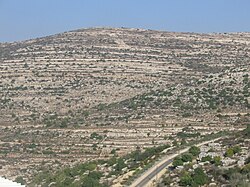
At a time when the latest U.S.-brokered peace effort is in crisis, the tussle over road-building is a test of Israel's willingness to give up much of the West Bank and allow Palestinian statehood to move forward.
Israeli Prime Minister Benjamin Netanyahu says he supports Rawabi's construction, but Jewish settlers and their supporters in the Israeli government, who oppose the very idea of Palestinian statehood, want the whole project scrapped.
Rawabi, some 30 kilometers (20 miles) north of Jerusalem, is one of many West Bank projects such as job-creating industrial zones and improved water supply that have similarly been held up. But perhaps none has the symbolic value of Rawabi, where builders envision 40,000 Palestinians enjoying the comforts of an American suburb, instead of crowded and disorganized towns and villages with poor infrastructure.
The city promises 1,000 pricey deluxe units and 5,000 homes for a growing middle class that can afford monthly mortgage payments of $400 to $700. There will be office and residential towers, a conference hall and hotel, shops, cafes, a cinema, mosques and a church. The view from the hilltop is a panorama of Palestinian villages and, 40 kilometers (25 miles) to the west, the Israeli metropolis of Tel Aviv on the Mediterranean.





 Immigration and Customs Enforcement (ICE) cannot re-detain Kilmar Ábrego García because a 90-day detention period has...
Immigration and Customs Enforcement (ICE) cannot re-detain Kilmar Ábrego García because a 90-day detention period has...






























